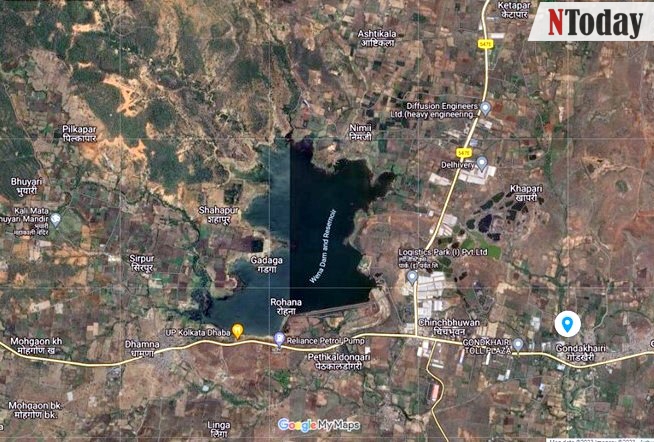
File Pic of protest by Locals
Nagpur: Despite vehement opposition from local communities and environmentalists, the Adani Group has secured environmental clearance (EC) from the Ministry of Forest Environment and Climate Change (MOEFCC) for its proposed underground coal mine at Gondkhairi in Kalmeshwar taluka, Nagpur, situated merely 20km from the city center.

Google Image Aerial Gondkhairi
This marks the Adani Group’s inaugural venture into Maharashtra’s mining sector, complementing its existing mines in Madhya Pradesh and Jharkhand.
The approval comes amid escalating concerns voiced by nearby residents, primarily farmers, who fear potential water shortages and adverse impacts on agriculture resulting from the underground mining operations. The area already grapples with dwindling water resources, exacerbating apprehensions about the mine’s environmental ramifications.
Last July, protesting farmers disrupted a public hearing on the project, prompting government authorities to prematurely terminate the meeting.
General Secretary of the Maharashtra Pradesh Congress Committee (MPCC), Vishal Muttemwar, criticized the EC decision, suggesting that the Adani Group’s track record in obtaining environmental clearances for mining projects across ecologically sensitive regions merits recognition in the Guinness Book of World Records.
Echoing these sentiments, environmentalist Sudhir Paliwal highlighted the extensive footprint of the mining lease, spanning 862 hectares, predominantly comprising agricultural land. Paliwal emphasized the significance of the numerous water bodies within the lease area, encompassing 13.89 hectares and serving as vital water sources for the agrarian communities.
With the EC in hand, Adani Power Maharashtra, a subsidiary of the conglomerate, is now poised to seek consent to operate from the Maharashtra Pollution Control Board (MPCB).
The extracted coal will primarily fuel the company’s power plant in Tiroda, Gondia district, with any surplus quantities earmarked for commercial sale.
The clearance has reignited debate over the balance between economic development and environmental conservation, underscoring the enduring tensions between corporate interests and local livelihoods in India’s resource-rich regions.
– Shubham Nagdeve













